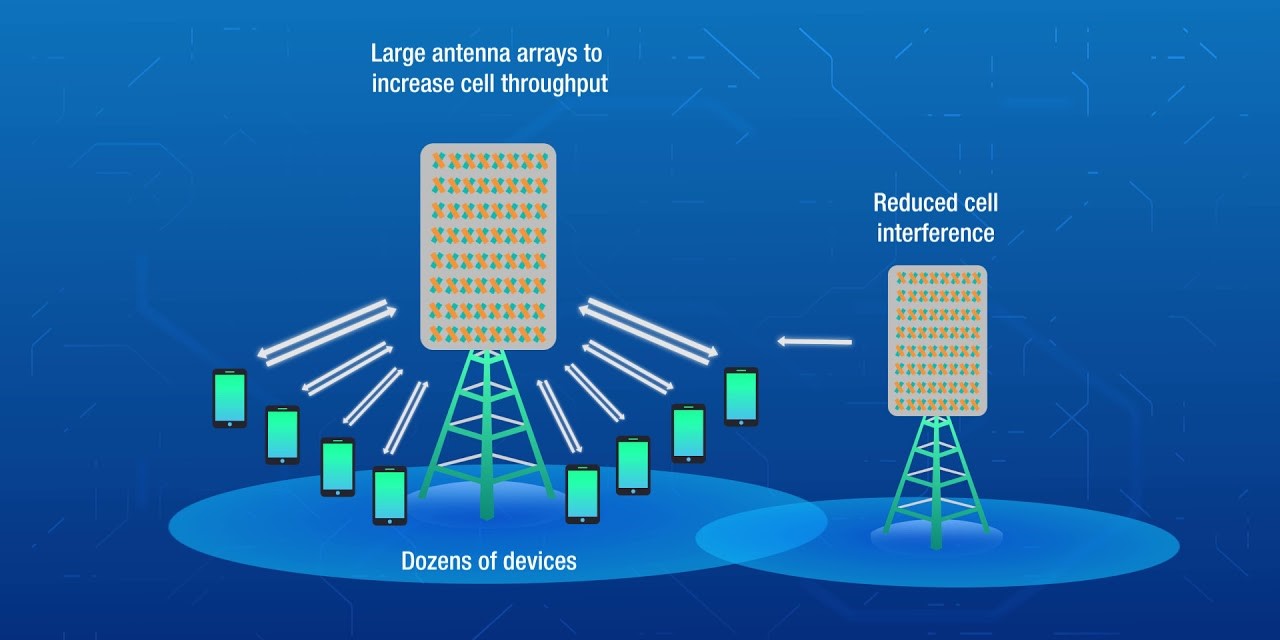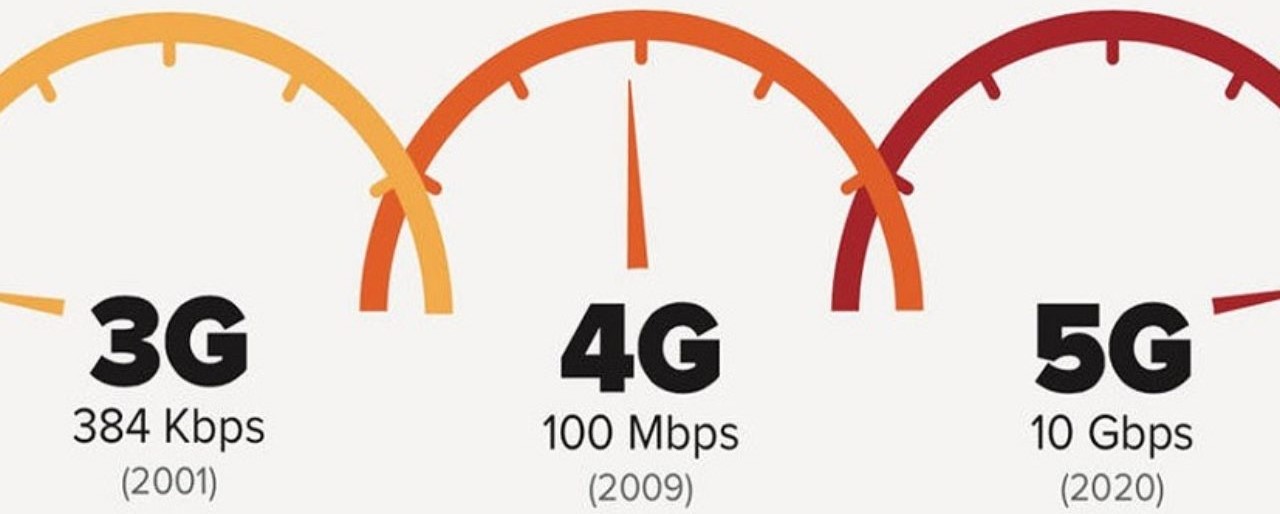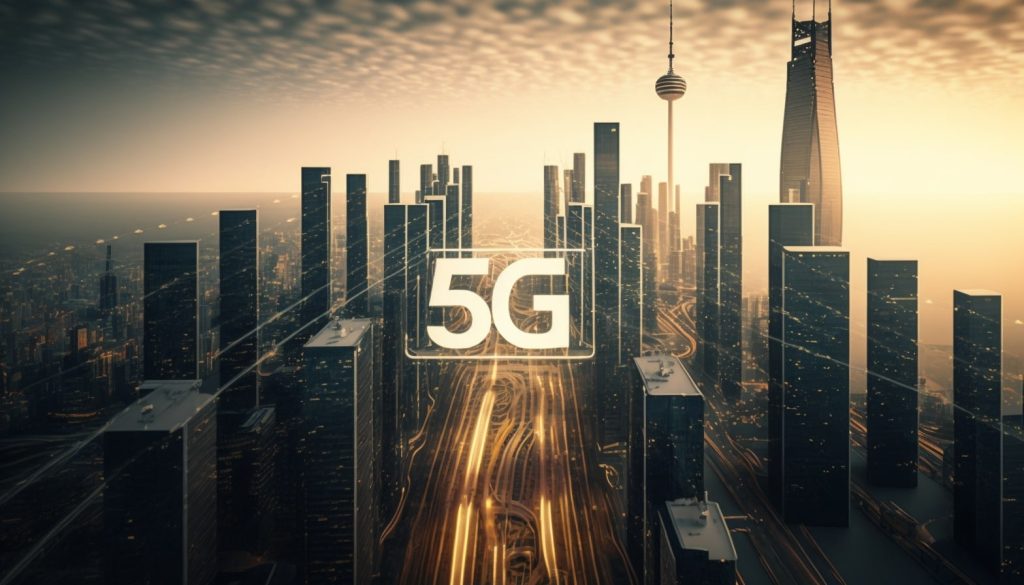The next generation of wireless communication, or 5G, promises to give both companies and consumers faster speeds, reduced latency, and more dependable connections. So what precisely is 5G technology, and what effects will it have on businesses?
I’ll attempt to address some of the fundamental issues concerning 5G in this article and go through its features, how they differ from earlier iterations, as well as the prospects and effects they will have on various industries.
What is 5G technology and how does it work?
The newest wireless communication standard, 5G, promises to give devices greater speeds and lower latency. It employs a higher frequency spectrum, allowing for the simultaneous transmission of more data across the airways.
This is done by combining modern infrastructure, such as network slicing technologies, huge MIMO antennas, and smaller cells.

What are the practical capabilities of 5G technology?
5G technology promises to bring a range of capabilities to businesses, including:
- Faster download and upload speeds: 5G technology can achieve download and upload speeds up to 20 times faster than 4G technology, making it ideal for bandwidth-intensive applications like streaming video and large file transfers.
- Lower latency: 5G technology can reduce latency to as little as one millisecond, which is important for applications that require real-time responsiveness, such as remote surgery, self-driving cars, and smart factories.
- Increased connectivity: 5G technology can support a much larger number of connected devices per unit area than 4G technology, making it ideal for the Internet of Things (IoT) applications.

How is 5G technology different from previous versions?
5G technology is different from previous versions in several ways:
- Higher frequency spectrum: 5G technology uses a higher frequency spectrum than previous wireless communication standards, which allows for more data to be transmitted over the airwaves at once.
- New infrastructure: 5G technology requires new infrastructure to support its capabilities, including small cells, massive MIMO antennas, and network slicing technology.
- More efficient: 5G technology is more efficient than previous versions, which means that it can transmit more data using less energy. This is important for reducing the environmental impact of wireless communication.
What opportunities does 5G technology present for businesses?
5G technology presents a range of opportunities for businesses, including:
- Enhanced productivity: 5G technology can improve productivity by enabling employees to work more efficiently and collaboratively, whether they are in the office or working remotely.
- New business models: 5G technology can enable new business models, such as remote maintenance and repair services for equipment, virtual and augmented reality experiences, and real-time analytics.
- Improved customer experience: 5G technology can improve the customer experience by enabling faster and more reliable communication, personalized services, and immersive experiences.
How can 5G technology impact other main industries?
5G technology can impact a range of industries, including:
- Healthcare: 5G technology can enable real-time remote medical consultations, remote surgery, and wearable devices that monitor patients’ health.
- Manufacturing: 5G technology can enable smart factories that use real-time data to optimize production, reduce downtime, and improve quality.
- Transportation: 5G technology can enable self-driving cars that communicate with each other and the infrastructure in real time, reducing accidents and improving traffic flow.
As a result of providing higher speeds, reduced latency, and more dependable connections, 5G technology is poised to revolutionize the way organizations conduct their operations. It offers a variety of commercial options, including increased productivity, new business models, and greater consumer experiences.
Moreover, a variety of other industries, such as healthcare, manufacturing, and transportation, may be impacted by 5G technology. The prospects and advantages of 5G technology are numerous and have the potential to significantly change how organizations run.
In conclusion, as 5G technology spreads around the world, organizations should be ready to take advantage of it and think about how it can change the way they do business. With its improved connection, quicker speeds, and reduced latency, 5G technology is expected to spur innovation and open up new commercial prospects for companies in a variety of sectors.

The Controversies About 5G Technology
Although having the ability to completely change businesses and sectors, 5G technology has also generated controversy and conspiracy theories. The following issues have been raised in relation to 5G technology:
- Health concerns: Some people have raised concerns about the potential health risks of 5G technology. They believe that the increased exposure to radio-frequency radiation from 5G infrastructure could lead to health issues such as cancer, infertility, and neurological problems. However, there is no scientific evidence to support these claims, and the World Health Organization (WHO) has stated that there is no known health risk associated with 5G technology.
- Environmental concerns: Another controversy associated with 5G technology is the potential impact on the environment. Some people believe that the increased use of 5G technology will lead to an increase in electronic waste and energy consumption. While there may be some truth to this claim, it is important to note that 5G technology can also be more energy-efficient than previous generations of cellular technology.
- Security concerns: As with any new technology, there are also concerns about security and privacy. Some experts worry that the increased connectivity provided by 5G technology could make it easier for hackers to access sensitive information or launch cyber attacks. In addition, some countries have raised concerns about the security of 5G infrastructure supplied by Chinese technology companies such as Huawei.
While these debates may be unsettling, it’s critical to keep in mind that many of the assertions made regarding 5G technologies are based on incomplete or incorrect knowledge. As with any new technology, it’s crucial to continue assessing, monitoring, and mitigating the dangers related to 5G.





